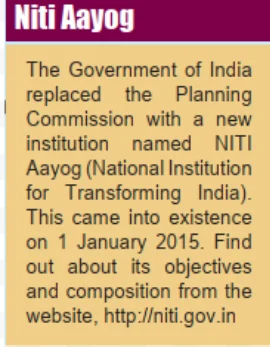![]() 26 Jul 2024
26 Jul 2024
The Planning Commission stands apart from numerous commissions and other bodies established by the Constitution, as it was established on March 15, 1950, through a direct resolution by the Government of India. Its primary function is advisory in nature and its recommendations gain authority only upon approval by the Union Cabinet.

The resolution that set up Commission defined scope of its work in the following terms :
“The Constitution of India has guaranteed certain Fundamental Rights to the citizens of India and enunciated certain Directive Principles of State Policy, in particular, that the State shall strive to promote the welfare of the people by securing and protecting….a social order in which justice, social, economic and political, shall …….. …. direct its policy towards securing, among other things,
Adoption of Five-Year Plans: India’s Planning Commission adopting the USSR’s concept of five-year plans (FYP) outlines a plan for its income and expenditure over the next five years.


| Must Read | |
| Current Affairs | Editorial Analysis |
| Upsc Notes | Upsc Blogs |
| NCERT Notes | Free Main Answer Writing |
The evolution of planned development in Indian politics began with consensus on government intervention, driven by experiences like the Great Depression and Soviet development model. The Planning Commission guided India through five-year plans, focusing on poverty, agriculture, and industrialization. Yet, it faced challenges and criticisms, leading to debates on the industry-agriculture balance and rural community impact. India’s development journey is characterized by ongoing adaptation and reflection, mirroring the dynamism of its democratic process.
| Glossary:
Democracy: A form of government in which the rulers are elected by the people. Planned Development: A strategy in politics and urban planning where government authorities deliberately design and regulate the growth of cities, regions, or countries to achieve specific social, economic, and environmental goals. Economic Development: The process of improving the economic well-being and quality of life of a community, region, or nation. It often involves measures to increase income, create jobs, and stimulate economic growth. Socialism: Socialism is a political and economic ideology that advocates for the collective or government ownership and control of the means of production, distribution, and exchange in society. Capitalism: Capitalism is an economic and political system in which the means of production, distribution, and exchange are primarily owned and operated by private individuals or corporations to generate profit. Budget: A budget is a spending plan based on income and expenses. |
<div class="new-fform">
</div>